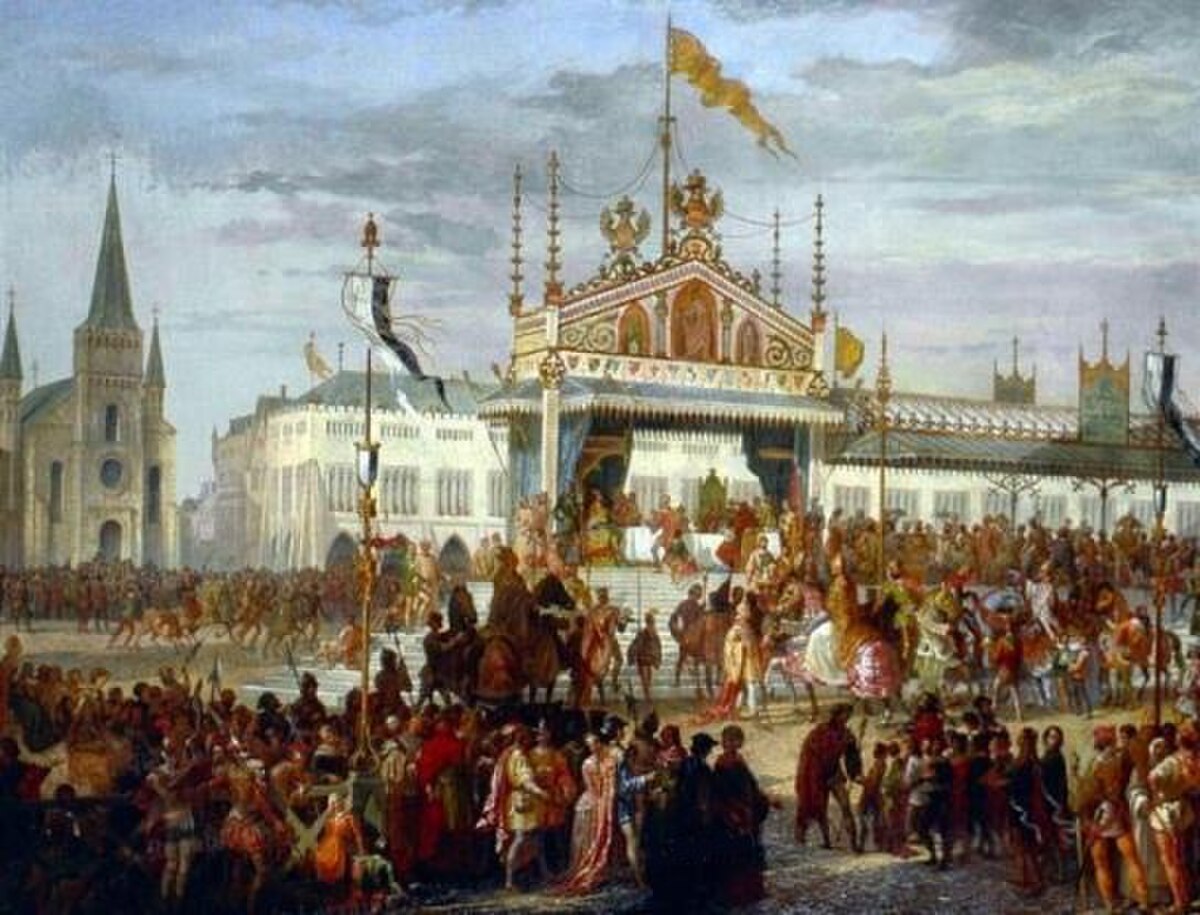
Golden Bull of 1356
Nuremberg, GermanyThe Golden Bull, issued in 1356 by Charles IV, defines the new character that the Holy Roman empire had been adopting. By simply denying Rome the ability to accept or reject the choice of the electors, it puts an end to papal involvement in the election of a German monarch. In exchange, Charles gives up his imperial rights in Italy, with the exception of his title to the Charlemagne-inherited kingdom of Lombardy, according to a separate arrangement with the pope.
A new version of the title, sacrum Romanum imperium nationis Germanicae, which was accepted in 1452, reflects that this empire would now primarily be a German one (Holy Roman empire of the German nation).
The Golden Bull also clarifies and formalizes the process of election of a German king. The choice has traditionally been in the hands of seven electors, but their identity has varied. The group of seven is now established as three archbishops (of Mainz, Cologne and Trier) and four hereditary lay rulers (the count palatine of the Rhine, the duke of Saxony, the margrave of Brandenburg and the king of Bohemia).
